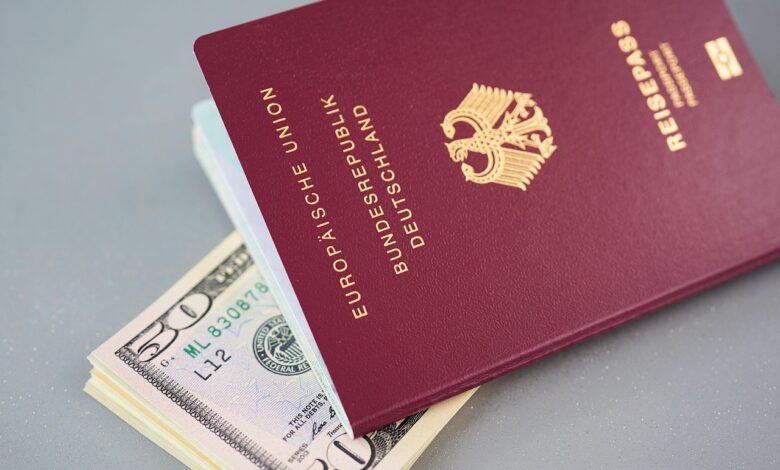Greek Work Visas and Permits: Requirements and Application Process

Greece, with its rich history, stunning landscapes, and vibrant culture, is an increasingly attractive destination for expatriates seeking employment opportunities. Whether you’re a skilled professional, entrepreneur, or seasonal worker, understanding the Greek work visa and permit system is crucial for a smooth transition to living and working in this Mediterranean country.
This guide will walk you through the types of work visas available, eligibility requirements, and the step-by-step application process to help you navigate Greece’s immigration policies effectively.
1. Types of Greek Work Visas and Permits
Before applying, it’s important to determine which type of visa or permit suits your situation. The most common categories include:
A. Employment Visa (Type D Visa)
- Who It’s For: Individuals who have secured a job offer from a Greek employer.
- Validity: Typically valid for one year and renewable.
- Key Requirement: A signed employment contract or job offer letter.
B. EU Blue Card
- Who It’s For: Highly skilled non-EU workers with a job offer in Greece that meets specific salary thresholds.
- Benefits: Allows mobility within the EU after 18 months and provides access to social benefits.
- Eligibility: Requires proof of higher education qualifications and a binding job contract.
C. Self-Employment Visa
- Who It’s For: Entrepreneurs, freelancers, or individuals planning to start a business in Greece.
- Requirements: A detailed business plan, proof of sufficient funds, and registration with Greek authorities.
D. Seasonal Work Visa
- Who It’s For: Workers employed in industries like tourism, agriculture, or hospitality during peak seasons.
- Duration: Usually valid for up to 9 months per year.
E. Intra-Company Transfer Permit
- Who It’s For: Employees transferred to a Greek branch of their multinational company.
- Conditions: Requires at least six months of prior employment with the same company abroad.
F. Digital Nomad Visa
- Who It’s For: Remote workers and freelancers who wish to live in Greece while working for foreign clients or companies.
- Eligibility: Proof of stable income (minimum €3,500 monthly), health insurance, and accommodation arrangements.
2. General Requirements for a Greek Work Visa
Regardless of the type of visa you’re applying for, there are some standard documents and criteria you’ll need to fulfill:
Basic Documentation:
- Valid Passport: Must be valid for at least three months beyond your intended stay.
- Completed Application Form: Available on the website of the Greek consulate or embassy.
- Passport-Sized Photos: Recent photos meeting biometric standards.
- Proof of Accommodation: Rental agreement, hotel reservation, or invitation letter from a host.
- Travel Insurance: Coverage must include medical emergencies and repatriation.
- Proof of Financial Means: Bank statements, payslips, or sponsorship letters showing you can support yourself financially.
Additional Documents Based on Visa Type:
- Employment Contract: For Employment Visas and EU Blue Cards.
- Business Plan: For Self-Employment Visas.
- Invitation Letter: From the Greek company for Intra-Company Transfers.
- Income Proof: For Digital Nomads, including client contracts or invoices.
3. Step-by-Step Application Process
The process of obtaining a Greek work visa involves several stages, from securing a job offer to submitting your application. Here’s how to proceed:
Step 1: Secure a Job Offer or Business Approval
- Before applying for a work visa, you must have either:
- A confirmed job offer from a Greek employer.
- Approval for self-employment or business registration (if applicable).
Step 2: Gather Required Documents
- Collect all necessary paperwork, ensuring translations into Greek where required (e.g., diplomas, certificates).
Step 3: Submit Your Application
- Apply at the nearest Greek consulate or embassy in your home country. Some applications may also require an appointment.
Step 4: Attend an Interview (If Required)
- Certain visas, such as the EU Blue Card, may involve an interview to assess your qualifications and intentions.
Step 5: Wait for Processing
- Processing times vary but typically take between 15 to 90 days. Expedited services may be available for an additional fee.
Step 6: Receive Your Visa
- Once approved, you’ll receive a Type D visa allowing entry into Greece.
Step 7: Apply for a Residence Permit
- Upon arrival in Greece, you must apply for a residence permit (Άδεια Διαμονής) at the local Aliens and Immigration Department within 90 days of entering the country.
4. Applying for a Residence Permit in Greece
After entering Greece on a work visa, you must formalize your status by obtaining a residence permit. This document grants legal residency and work authorization.
Documents Needed for a Residence Permit:
- Completed application form.
- Valid passport and visa.
- Four recent passport-sized photos.
- Proof of address in Greece (lease agreement or utility bills).
- Health insurance covering your stay in Greece.
- Criminal record clearance from your home country.
- Payment of the application fee (varies depending on the type of permit).
Processing Time:
- Residence permits usually take 1-3 months to process. During this time, you’ll receive a temporary residence card allowing you to work legally.
5. Costs Associated with Greek Work Visas
The costs associated with obtaining a Greek work visa and residence permit vary based on the type of visa and individual circumstances. Below are approximate fees:
| Service | Fee (EUR) |
|---|---|
| Work Visa Application | €75–€150 |
| Residence Permit Application | €100–€200 |
| Translation and Apostille Fees | Varies |
| Health Insurance | €300–€600/year |
Note: Additional costs may arise for legal assistance, document authentication, or expedited processing.
6. Tips for a Successful Application
To increase your chances of approval, keep these tips in mind:
- Start Early: Begin the process well in advance, as delays can occur due to high demand or incomplete documentation.
- Double-Check Requirements: Ensure all documents are accurate, translated into Greek, and apostilled if needed.
- Engage Legal Assistance: Consider hiring an immigration lawyer or consultant familiar with Greek procedures.
- Maintain Transparency: Be honest about your intentions and provide truthful information throughout the process.
- Stay Updated: Immigration policies can change, so regularly check the official websites of Greek embassies or consulates.
7. Frequently Asked Questions (FAQs)
Q: Can I work in Greece without a visa?
- A: Non-EU citizens require a work visa to legally work in Greece. EU/EEA citizens do not need a visa but must register their residence if staying longer than 90 days.
Q: How long does a Greek work visa last?
- A: Most work visas are initially issued for one year and can be renewed annually.
Q: Can my family join me in Greece?
- A: Yes, dependents (spouse and children) can apply for a dependent visa once your work visa is approved.
Q: What happens if my application is denied?
- A: You can appeal the decision or reapply after addressing the reasons for rejection.



